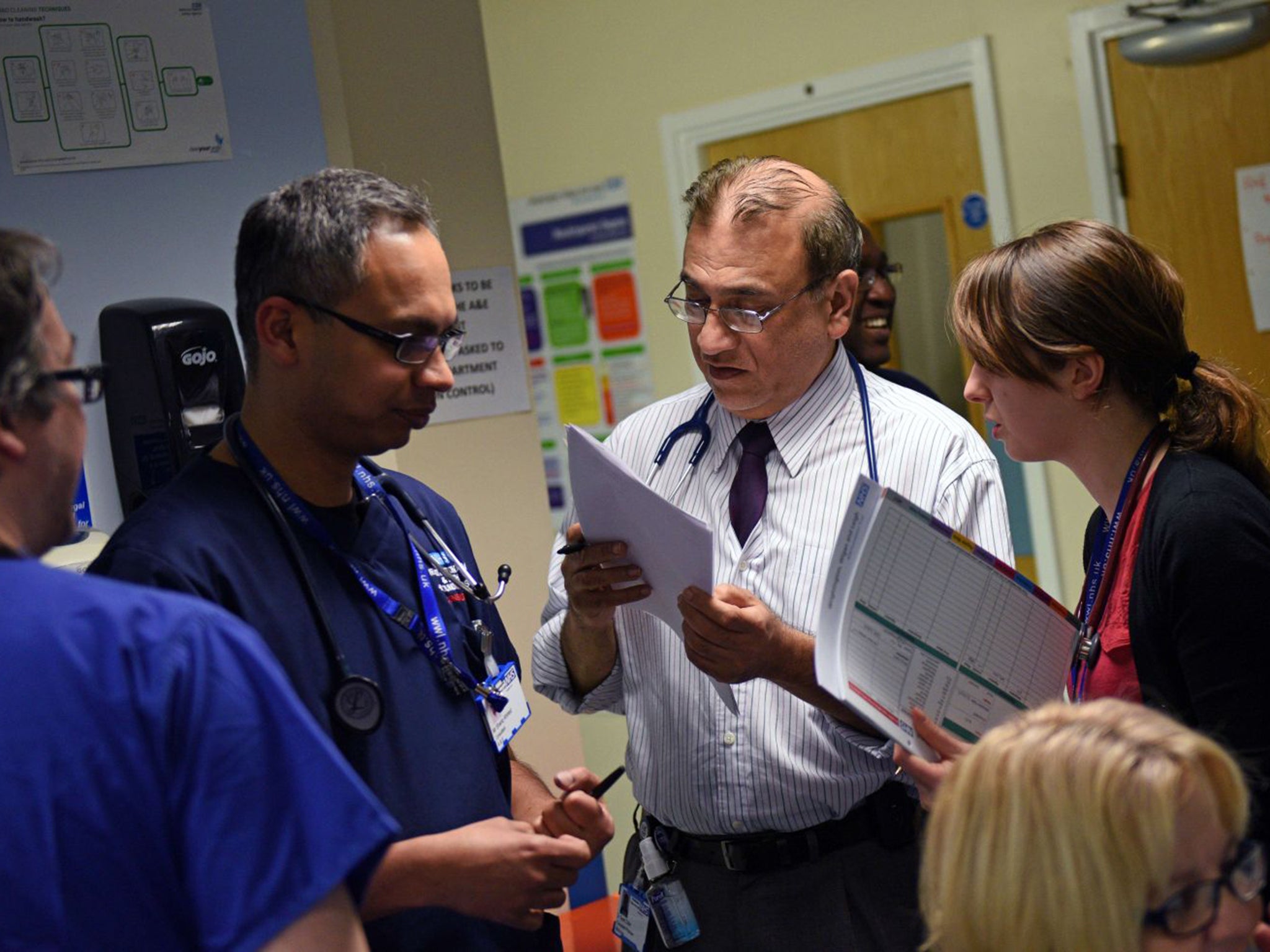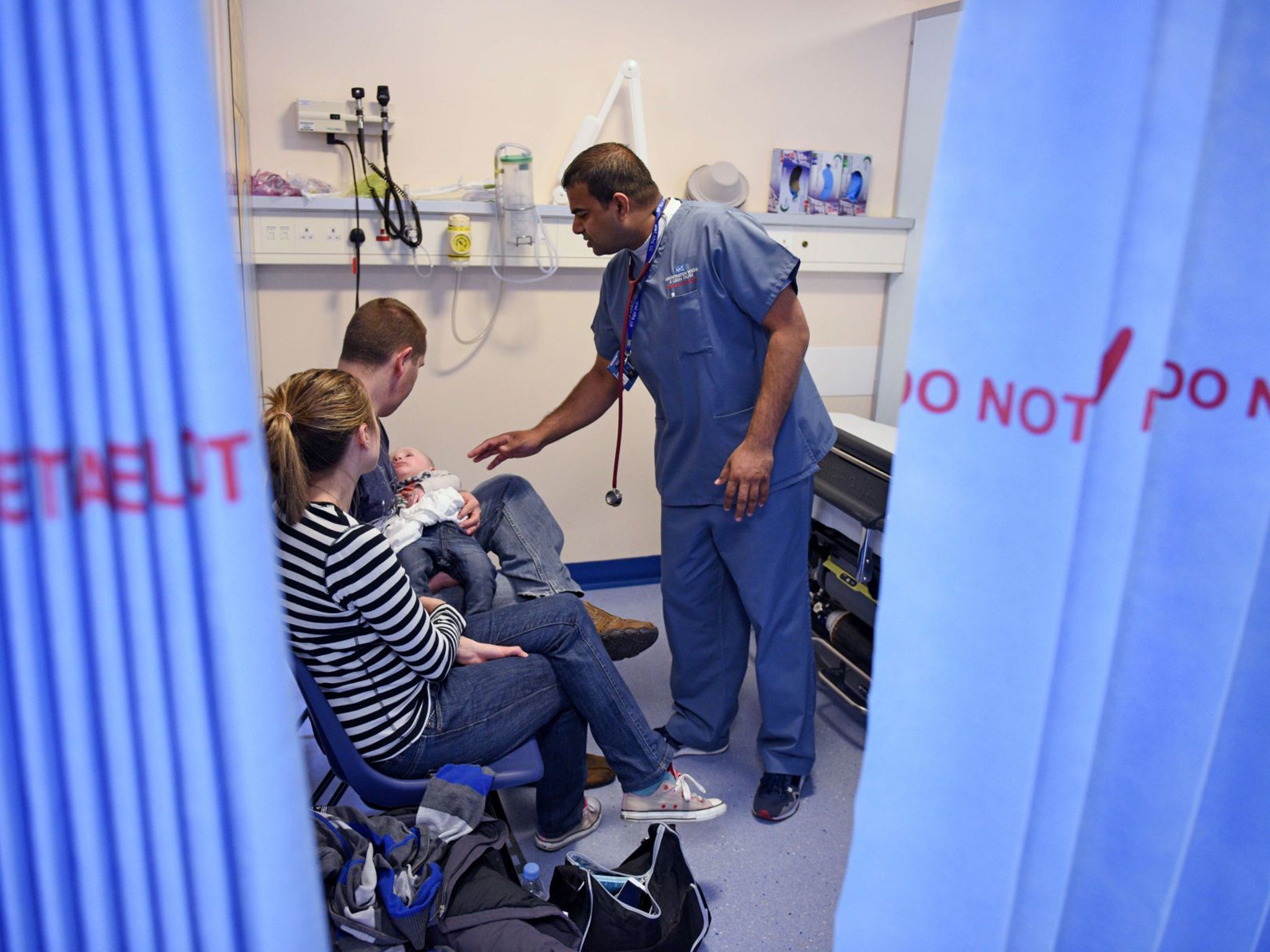We are the subjects of a political con on NHS funding
The main parties face the future by offering only vague promises, shameless games and a conspiracy of silence

Last week, the former NHS boss, Sir David Nicholson, added his voice to a growing chorus of concern on the future of the National Health Service, voicing the fear that politicians are wilfully ignoring the scale of the financial problems facing it.
The NHS is at a crossroads. Doctors and nurses have done as much as they can to protect and improve patient care, but rising demand and years of underfunding have left services close to breaking point. This has been compounded by the costly and unnecessary reorganisation that distracted attention from the real issues facing the service and wasted precious public money on private competition.
The question we need to face up to is a simple one. Do we want to protect an NHS true to its founding principles – among which is that it should be a service universal, free and based not on ability to pay but on need? Because if so, it will take a lot more than the vague promises outlined in party manifestos last week and will require an end to the shameless political game-playing that we’ve seen during this election campaign.
With just over two weeks to go until polling day, it is striking how little detail parties have produced on NHS funding. Billions of pounds have been promised, together with extra services and more staff, but there has been no meaningful detail on where the money will come from to pay for this or how much it will cost. To plug the NHS funding gap, we are being asked by politicians to pin our hopes on a sudden growth spurt in the economy or vague measures to tackle tax avoidance. There is a convenient conspiracy of silence, a sort of political con, whitewashing the true scale of the challenges facing the health service.
Let’s consider the facts. The NHS is facing a £30bn annual gap in funding by 2020-21. This is because the demand on services and cost of delivering them are both rising as the population grows and ages. There is broad agreement that the NHS needs at least £8bn extra investment every year. This is not money to deliver the additional care we know will be needed, but rather the minimum needed for the NHS to simply stand still. But this is based on the assumption that £22bn a year can be saved through efficiencies in the service over the next parliament. Yet the political parties give us nothing on where these savings can be made and how they can be delivered without compromising patient safety.

Crucially, a report from the respected Commonwealth Fund found the NHS to be the most efficient health service of any major developed country – three years ago. The health service has already been subject to billions of pounds of efficiency savings in recent years, a significant proportion of which came from freezing the pay of doctors, nurses and other front-line staff. There is little or no fat left to cut, let alone £22bn worth of savings to be squeezed.
The scale of the challenge is enormous. Remarkable advances in health care mean that more people are living longer, many have healthy lives while managing multiple conditions, and some have more complex care needs. The number of people aged over 65 is expected to increase by 50 per cent in the next 20 years. In England, around 15 million people have at least one long-term condition, a figure set to rise. They account for half of all GP appointments, 70 per cent of all hospital bed days, £7 in every £10 spent on health care and two thirds of that spent on social care. As a society, choosing to invest in health care is a decision we make to support those of us who are not so lucky as to keep our health till the end. And to banish the spectre of impoverishment through illness.
Many parts of the NHS are struggling to cope, yet, rather than address these problems, politicians are promising a huge and unrealistic expansion in services. So far this election we have had pledges on same-day GP appointments and a massive expansion of seven-day hospital services. This is despite a lack of clinical evidence to identify these as priorities, or the funding to back up the promises. While there have been some positive, long-overdue noises from parties on areas such as mental health and delivering more joined-up health and social care, these mean little without resources. And in public health policy, we have seen little or no detail on how to tackle the ticking time bomb of rising obesity, or to reduce harm related to tobacco and alcohol overuse. Many questions remain and there are vital details about which the parties have said nothing.
This close to the election, we have to conclude that anything short of a detailed and fully funded plan for our health and social care is simply electioneering, designed to play political games with the health service, rather than genuinely address the enormous challenges facing it. This is the worst kind of political campaigning – promising the undeliverable, misleading the public and refusing to address the facts. Patients, voters and those working in the health service deserve better.
The NHS has held on as the best healthcare system in the world. But, with rising pressure, inadequate investment and funding falling behind that of other developed nations, it has now reached a crossroads. Whoever holds the keys to No 10 after polling day must put an end to political game-playing with the NHS and, as a matter of urgency, commit to having an open and honest debate on the future of the health service and how to pay for it. It is not too late to protect an NHS true to its founding principles, but to do so we need to act now.
Mark Porter is the head of the British Medical Association

Join our commenting forum
Join thought-provoking conversations, follow other Independent readers and see their replies